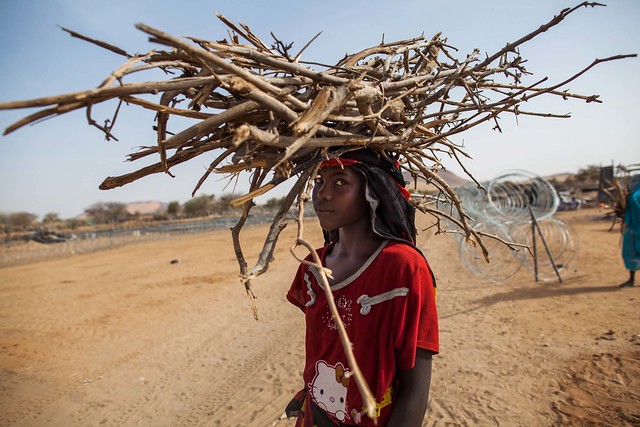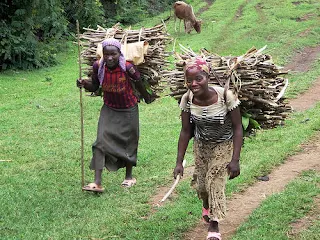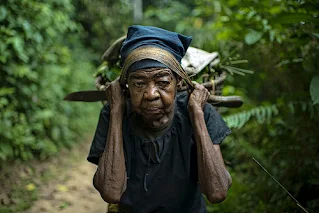Burdens of Women Collecting Firewood in Africa

Throughout Africa, women and girls walk for hours a day in the hope of finding a few branches or roots to use as firewood; to avoid the midday sun, many leave their homes before sunrise.
Burdens of Women Collecting Firewood in Africa
Almost all African countries still rely on wood to meet basic energy needs, in fact over 80% of the energy supply in African countries comes from wood.
The World Health Organization states that “Over 98,000 Nigerian women die annually from the use of firewood. If a woman cooks breakfast, lunch, and dinner, it is equivalent to smoking between three and 20 packets of cigarettes a day.”
Fuelwood
accounts for about 90% of the total wood consumption in Africa and 81% of
African households use solid fuels while 70% depend on them as their primary
energy source for cooking. Nearly 60% of urban dwellers also use woody biomass
as an energy source for cooking.
Energy is both an engine of development and a source of many of today’s economic and environmental problems.
Women seek firewood often in arid areas already lacking adequate vegetation not only face the threat of rape but compete with other people who also need the resource.
Approximately 60% of the world’s total wood removals from forests and trees outside forests are used for energy purposes. In other words, woodfuel is one of the main products of forests and trees.
Woodfuel is not only used in poor and rural households. In many towns and metropolitan areas, woodfuel is widely used either as a main, substitute or supplementary fuel by low-, middle- and high-income groups.
In Africa, fuelwood, charcoal and other forms of biomass energy make a major contribution to meeting the energy requirements of the population
The collection, distribution, and trade of these fuels also provide income and employment to millions of Africans but also house unsafe working conditions for many young girls and women.
Lack of safe access to firewood can be life-threatening. Many women spend more than 20 hours a week collecting firewood. Contrary to common belief, not all-wood fuel is sourced from natural forests.
Wood fuel production takes place within several types of land use, such as tree fallow and shrub fallow, woodlots, tree plantation sites, reforestation sites, fruit trees, scattered trees, and bushland and shrubland areas.
Together we build awareness that boost harmony, education, and success, below are more links to articles you will find thought provoking.
- Historical African Country Name
- Top 20 Largest Countries in Africa
- How many countries does Africa have?
- Roots of Africanized Christianity Spiritual Songs
- Chocolate Processing Facts History and Recipes
- Awesome Kenyan Woman
- Land is Not For Women in Sierra Leone
- African Kente Cloth Facts
- Accra the Ghanaian Capital Ultimate Mall Experience










